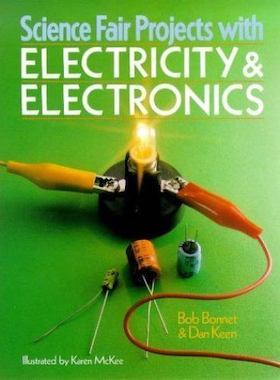
-----
Vinegar plus bleach plus salt to Pit Pennies Rapidly
March 7, 2008
I have been trying for years to find an answer to this question:
It started when I was a kid and I was experimenting with household chemicals (not recommended) and a penny. I tried different combinations and found that vinegar
⇦in bulk on
eBay
or
Amazon [affil link] , Salt, and Bleach
⇦ bleach/sodium hypochlorite in bulk on
eBay
or
Amazon [affil link]
combined make an extremely corrosive agent against the penny. In moments of combining all three the penny will turn green. After being left for only a number of hours, the penny was almost beyond recognition. The chemical mixture turned brown and the penny had small pits in it wherever there had been a grain of salt sitting on it or under it.
I have tried to find an answer all over. This site was the closest thing. I found some stuff for vinegar+Bleach solutions but none for the additional salt. I've found that the reaction I've been experiencing only happens when all three components are combined. If any one is missing the results won't happen or they will not be nearly as dramatic or quick.
Thanks
- Rycroft, Alberta, Canada
I understood your description, Jaron, but I didn't hear a question. What is your question? Note: mixing bleach and vinegar is very dangerous. The reason it's so corrosive is the instantaneous release of large quantities of poisonous chlorine gas (as well as oxygen).

Ted Mooney, P.E.
Striving to live Aloha
finishing.com - Pine Beach, New Jersey
Ted is available for instant help
or longer-term assistance.
March 6, 2008
May 27, 2008
Sorry, I got so much into the experiments I've done that I forgot my question.
I wanted to know why that combination (Bleach, vinegar, and Salt) reacts so quickly with pennies (copper).
I was also wondering if the resultant mixture was a special chemical.
What kind of chemical reaction is happening?
Your information about the chlorine gas was very good. Just a note: I ALWAYS do this outside or at least in a well ventilated area and I never stand or put my face directly over the chemicals.
Thanks for your response.
I appreciate hearing from someone who knows what they are talking about and not just another kook on the web.
Jaron Willems- Rycroft, AB, Canada
Hi, again. Bleach is sodium hypochlorite (NaOCl) with caustic soda ⇦liquid caustic soda in bulk on Amazon [affil link] (NaOH) added to lower the pH of the solution to help keep the chlorine gas dissolved in the water. When anything acidic like vinegar is added, large amounts of chlorine gas are quickly released. The chemistry of the reaction is explained at www.chemistryquestion.com/English/Questions/ChemistryInDailyLife/3c_bleach_cleaner.html
The chlorine gas is an extremely powerful oxidizing agent that corrodes copper rapidly.
Regards,

Ted Mooney, P.E.
Striving to live Aloha
finishing.com - Pine Beach, New Jersey
Ted is available for instant help
or longer-term assistance.
May 27, 2008
July 27, 2012
The reaction that happens is this one:
CuCl2 + Cu -> Cu2Cl2
The vinegar starts off dissolving the oxide layer on the coins which puts copper into the solution. An acid pH also increases the solubility of CuCl2. An oxidising agent speeds the process by oxidising the CuCl2 back to Cu2Cl2
3 Cu2Cl2 + 6 Cl- + 6 H+ + NaClO3 -> 6 CuCl2 + 3H2O + NaCl
- Christchurch, New Zealand
|
My son is working on a science fair project for his school and is interested in seeing the chemical reaction bleach has on with zinc (penny). He's trying to find out if there will be a change in temperature in the bleach solution. Can you confirm whether or not we will get any results? He is getting a little discouraged. Thank you! - Sparks, Maryland March 11, 2010 March 11, 2010 Hi, Bob. Bleach will attack the zinc that is present in 1983 and later pennies, not because of the chlorine bleach per se, but because of the caustic soda ⇦liquid caustic soda in bulk on Amazon [affil link] that is used in it to raise its pH to keep it stable: Zn0 + 2NaOH ==> Zn(OH)2 + 2Na+ Yes, this releases heat. In fact, all chemical reactions release heat. That is why they proceed in the direction they proceed, and not in the opposite direction or alternating directions: because the materials move to a lower energy state and it would take an input of energy to reverse the reaction. You haven't said whether your son is in 1st grade or in high school, so any specific suggestions might be inappropriate unless they were slightly challenging but not frustratingly difficult for his grade level. But yes, it should be theoretically possible to float a bowl of bleach with a glass thermometer in an aquarium with a heater set at a constant temperature, cut up some pennies with tin snips to expose their zinc core, let them warm up in that water, and then record a slight rise in temperature of the bleach when the pennies are moved from the water to the bleach. Luck and Regards,  Ted Mooney, P.E. Striving to live Aloha finishing.com - Pine Beach, New Jersey Ted is available for instant help or longer-term assistance. |
Q, A, or Comment on THIS thread -or- Start a NEW Thread

